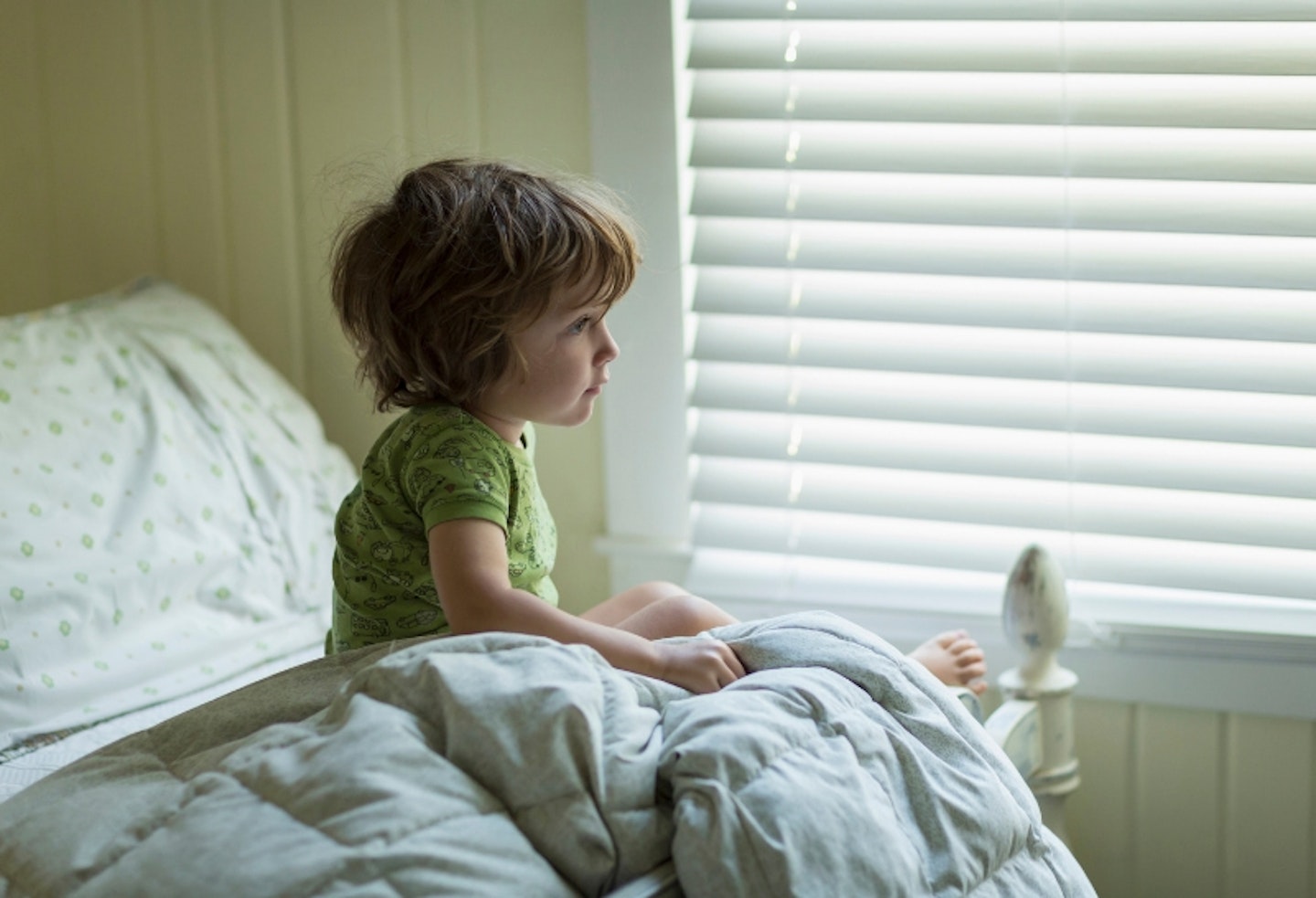You might have got day time potty training sorted, have all the right equipment and books, but nighttime potty training is a whole other beast. Find out more about the causes and treatments of this common childhood problem, plus how we as parents can help our little ones overcome the bedwetting phase.
Sleep is a base need for self-care, preventing disease, helping memory function, boosting health and general wellbeing as well as reducing anxiety and stress. For children, it enables physical and mental growth, resilience, memory consolidation, and life-long skills. Bedwetting interupts this vital time for children (and for parents!) so it's a good idea to encourage your child to stop wetting the bed as soon as possible.
In this article:

Bedwetting is a common developmental stage, and causes include:
-
Family traits
-
Constipation
-
Not having enough to drink in the day
-
Lack of Vasopressin (the hormone that helps the kidneys retain water)
Should I be worried about my child wetting the bed?
This Morning's Dr Raj Shah and Dr Sara Kayat answer viewer's health concerns and explain how to combat bedwetting:
Other ways to tackle bedwetting include:
-
Boosting knowledge and confidence
-
Keeping track of daytime drinks
-
Limiting drinks in the two hours before bedtime
-
Going to the toilet regularly through the day
-
Going for a wee before bath and before bed
-
Quietly and calmly dealing with any bedwetting in the night
-
Celebrating dry nights in the morning
Talking about toilet habits is something we aren’t generally good at – but teaching your child from a young age to notice and react to going to the toilet is important. This communication will help to take the stigma away from bedwetting, and enable your child to tell you when there’s a problem.
Just like for adults, the right bed and bedding such as type of pillow also has a huge impact on how well your child sleeps. Remember to protect your child's mattress with a waterproof cover. Having a cover keeps the mattress safe when there’s an accident so it stays clean and dry, while you wipe clean the cover or even wash it if possible.

The importance of nutrition
Getting a balanced, healthy diet is an important part of ensuring your children have a good night’s sleep. There are lots of things you can do as a parent to give your child the best nutrition, and the right type of food that will encourage their bodies to rest and recover overnight.
Healthy, fresh food is vital, containing all the nutrients, vitamins, and macronutrients to help children grow, develop, and sleep well.
It’s important that your child’s diet contains the amino acid Tryptophan. Tryptophan is found in protein foods, and enduces sleep. It’s important to combine carbs with proteins in the same meal to make Tryptophan available to the brain.
Tryptophan-rich foods include:
-
Seeds and nuts
-
Soya foods
-
Cheese such as mozzarella, cheddar and parmesan
-
Rabbit, lean roast beef or beef steak, chicken wings and drumsticks, turkey wings and breast
-
Salmon, halibut, mackerel, haddock and cod
-
Wheat germ and whole oats, buckwheat, wheat bran, oat cereal, beans and lentils
-
Eggs
Combine these healthy snacks to aid a good night’s sleep:
-
Whole grain pita with hummus
-
Whole grain crackers with organic peanut butter
-
Unsweetened whole grain cereal with soy milk
-
Rice with lentils
-
Rice, black beans, and guacamole
-
Hummus on a bed of steamed broccoli
-
Eggs on whole grain toast

Snacks before bedtime can help your child if they are struggling to sleep – such as a cup of milk and a few cut-up grapes, or a small banana and a teaspoon of peanut butter. However, beware that snacks don’t turn into a habit, rather than being truly helpful for your child’s sleep.
Mindfulness
Being mindful means paying full attention to what’s happening around you, without judging or wishing things were different.
Parenting is unpredictable, so having a sense of kindness and compassion around difficulty – yours and your children’s – will help you cope with challenging situations.
When a child is going through bedwetting, this obviously leads to broken sleep and coping with a stressful situation in the middle of the night, when you will be affected by tiredness and physical reactions.
It’s important to ground yourself, realise how you are feeling – physically and emotionally – before trying to help your little ones.
The do's and don’ts of bedwetting
If your toddler is still wet at night, don’t worry, it’s totally normal. So when does it become a problem and what can you do?
It’s not until the age of five that children are expected to no longer wet the bed, according to NICE guidelines. But there are exceptions to this, with a small group of children taking longer. Before that, the main thing to remember is to stay relaxed about any night time accidents. Being anxious about it can make matters worse.
DON'T stress about nappies
Before the age of five, if your child is still wet at night and is happy to keeping wearing a nappy, let him. But if you notice that it’s dry in the morning more times than it’s wet, let him try going for a night without one. He may be ready.
DO limit bedtime drinks
If your tot goes to bed at seven-thirty, it can help to avoid giving him any drinks after his evening meal at around 6pm. But if you do take this approach, make sure he has lots to drink during the day – roughly six to seven cups of water a day. You don’t want him to go to bed feeling thirsty, plus drinking enough encourages a healthy bladder.
DON'T punish your tot
If you find your child is taking much longer to be dry at night than his friends or other kids you know, try not to get frustrated with him. Ignore it as much as possible and remember, it’s not his fault – he’s unlikely to have any control over it. Being cross with him can lead to him becoming more anxious about it, which’ll make matters worse.
DO reward good behaviour
Don’t just pile on the praise when they do manage to stay dry all night, but also reward behaviour you’ve agreed to try, such as going to the loo before bed, or first thing in the morning.
DO remember every child is different
Bear in mind that girls are often faster off the mark than boys, and light sleepers have an advantage over deep sleepers. Genetics are also thought to play a part – if you or your partner were slow to be dry at night, chances are your child might be too.
